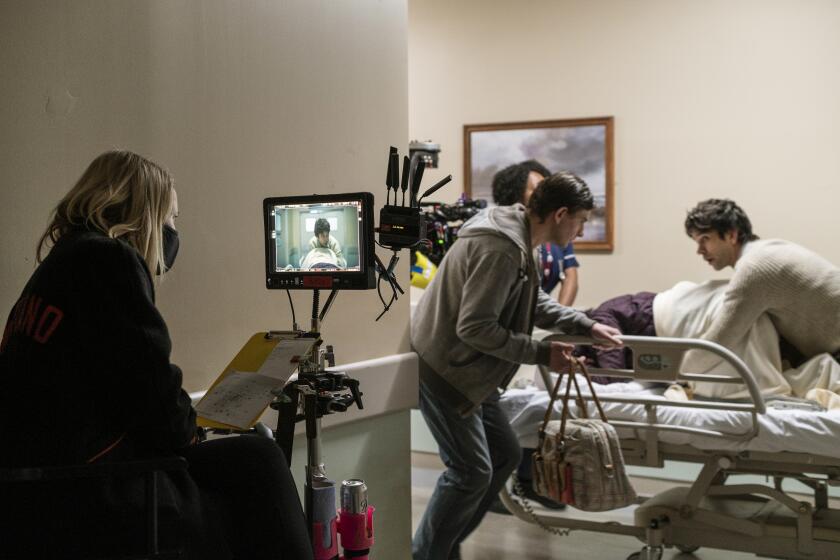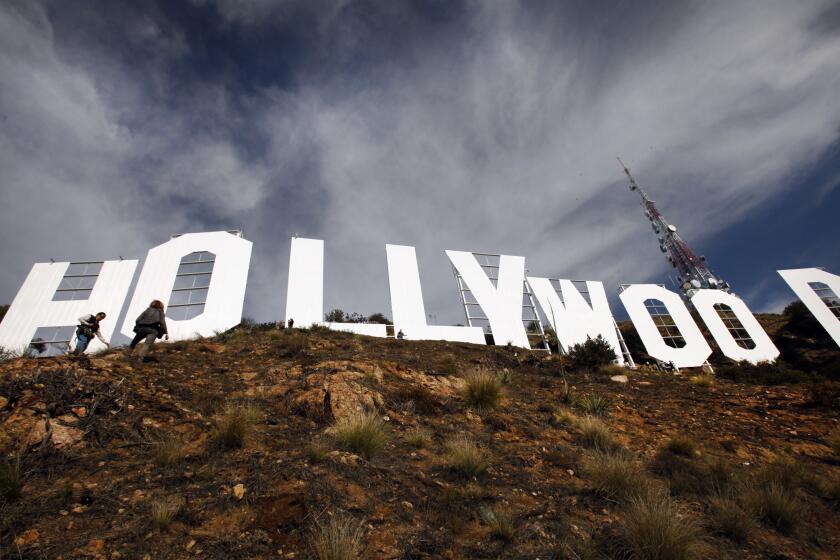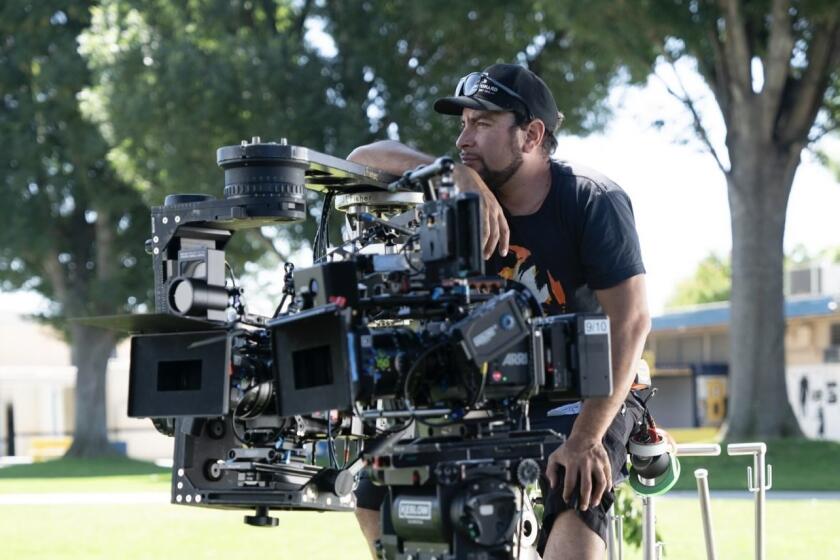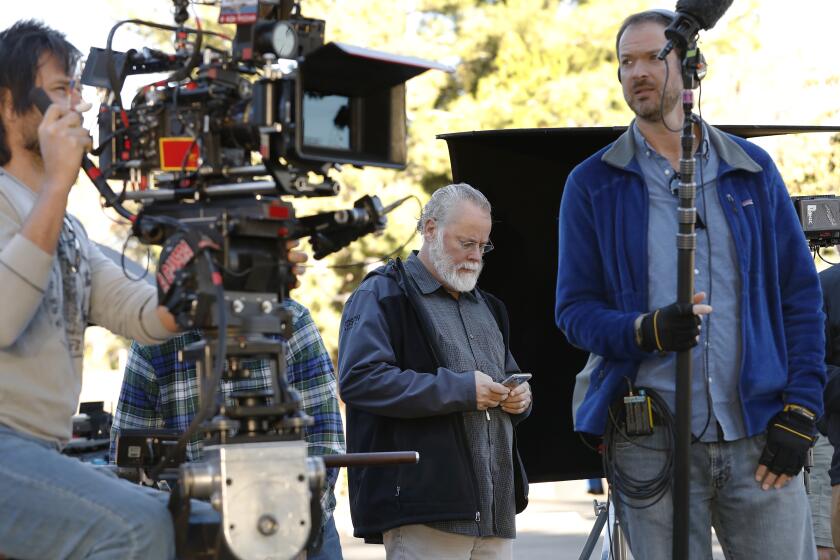U.S. film and TV production down 40% from peak TV levels, report says
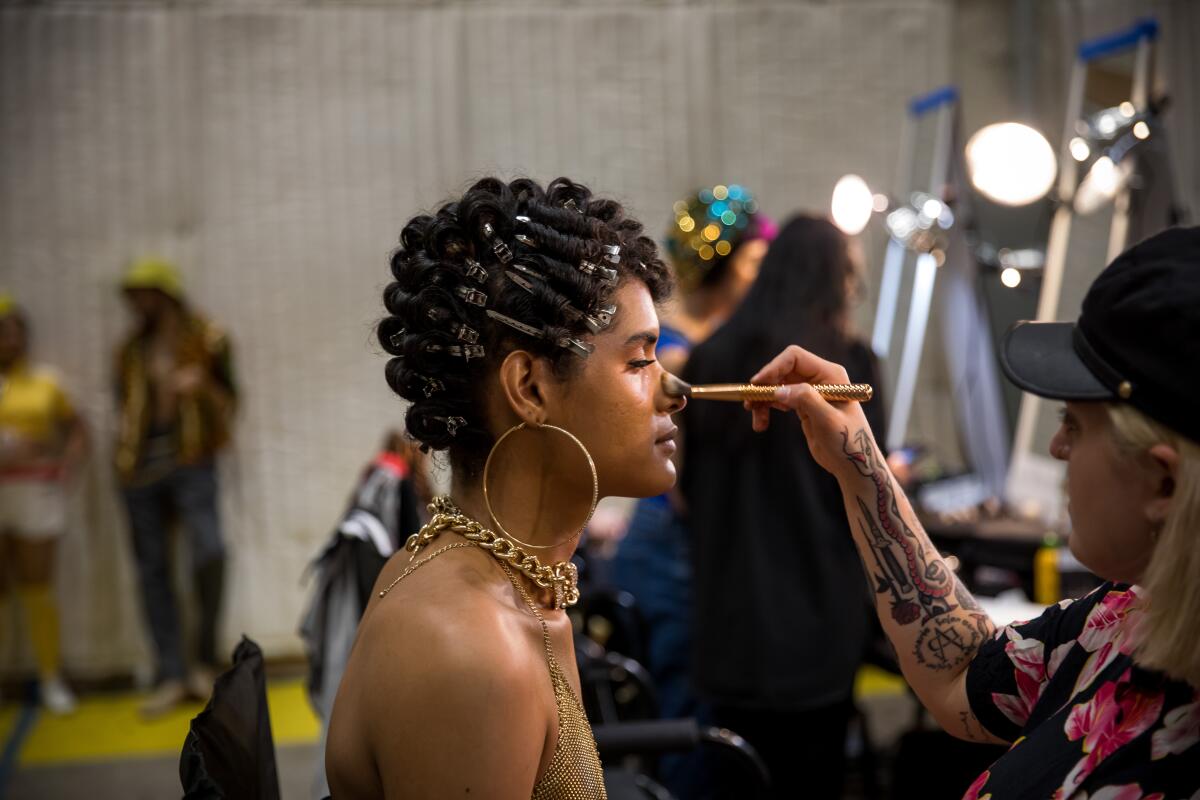
- Share via
The film and TV production drought plaguing the U.S. entertainment industry appears to be “here to stay,” according to a sobering new report by ProdPro.
The tracking company found that production in the United States was down about 40% in the second quarter of 2024 compared to peak-TV levels of filming activity during the same period in 2022. For nearly two years, Hollywood has suffered a stark decline in film and TV shoots that has prolonged mass unemployment and mental health crises among entertainment workers.
Globally, production in the second quarter of the year was down by about 20%, compared to 2022.
Global film and TV production in the first quarter of 2024 was down 7% from the same time last year, according to a report by ProdPro.
Though domestic film and TV shoots were up by 30% in the second quarter compared to 2023, the year-ago numbers are skewed by a production shutdown caused by the Hollywood writers’ strike, which began in May and concluded in September of last year.
Movies have been especially challenged. While the number of TV series in production increased globally by 20% compared to the second quarter of 2023, the number of movie shoots decreased by 18% this year.
The ProdPro study indicates that the overall sluggish production rebound following the writers’ and actors’ strikes — particularly for feature films — “can be partially attributed to the risk of another” work stoppage in 2024 by crew members.
Los Angeles is still the film and TV industry leader despite production levels rising in rival markets, according to a new Otis College report.
Industry insiders and experts had speculated earlier this year that studios were playing it safe by not moving forward with as many projects in anticipation of a third strike.
At this point, however, a crew member walkout is looking increasingly unlikely, after the industry’s largest below-the-line union secured a contract agreement with the studios and streamers with minimal drama.
The International Alliance of Theatrical Stage Employees — which represents costume designers, lighting technicians, makeup artists, cinematographers and other craftspeople on film and TV sets — reached a tentative contract deal last month with the top Hollywood studios.
Pending ratification, that agreement includes wage increases, health and pension benefits and artificial intelligence protections for some 50,000 members of the union, which has never gone on strike in its 131-year history.
Meanwhile, the Hollywood Basic Crafts — a coalition of unions advocating for drivers, electricians, location managers, animal trainers and other below-the-line workers — is still in the midst of contract negotiations with the companies. All the current crew member agreements expire July 31.
2023’s dual strikes by writers and actors created a dry spell for everyone in Hollywood. Crew members are still feeling the aftershocks.
Entertainment workers have been hurting as studios continue to cut back on production in an attempt to recoup the financial losses they incurred during the streaming wars.
The so-called peak TV era that enabled 600 scripted series to debut in a single year is over, movie theaters are still chasing pre-pandemic levels of attendance with thin release slates, and countless industry professionals have been unemployed since before the strikes began.
Furthermore, Los Angeles has been losing ground to other production hubs in the United States and abroad that offer more generous tax incentives to companies shooting there. Even so, the City of Angels remains by far the biggest driver of domestic film and TV employment, followed distantly by New York, Atlanta, Chicago, San Francisco and other major players.
Studios and workers alike were eager to restart film and TV production after the Hollywood strikes concluded. What’s taking so long in California?
ProdPro also tracked studios’ spending habits, noting that they committed in the second quarter of 2024 to investing a total $11.3 billion on film and TV productions — a 39% increase from the same period in 2023, but still lagging 20% behind 2022. According to the report, data show that “returning episodic projects and mid-budget studio films” have attracted the most funding.
Films and TV series that have launched production in the second quarter of 2024 include Amazon MGM’s “Project Hail Mary,” starring Ryan Gosling and shooting in London; director Ryan Coogler’s “Grilled Cheese,” starring Michael B. Jordan and filming in New Orleans; Amazon MGM’s “Mercy,” starring Chris Pratt at Culver Studios in Los Angeles; HBO’s “Game of Thrones” spin-off “A Knight of the Seven Kingdoms” in Belfast; and Amazon Prime Video’s “Blade Runner 2099,” starring Michelle Yeoh and shooting in Eastern Europe.
More to Read
Inside the business of entertainment
The Wide Shot brings you news, analysis and insights on everything from streaming wars to production — and what it all means for the future.
You may occasionally receive promotional content from the Los Angeles Times.
